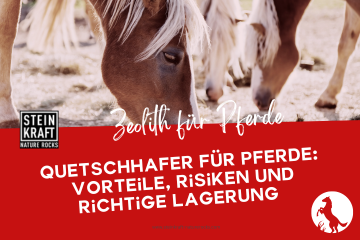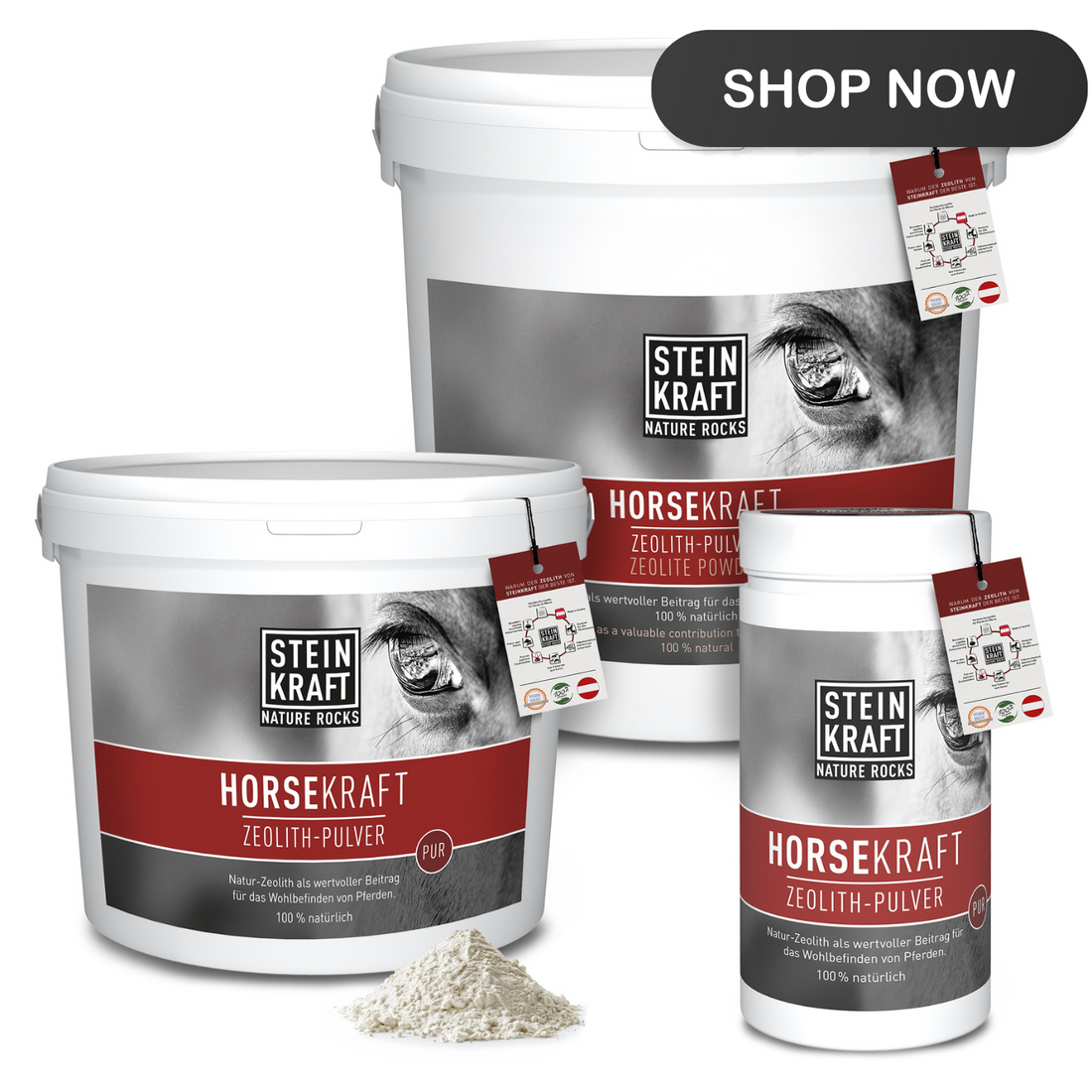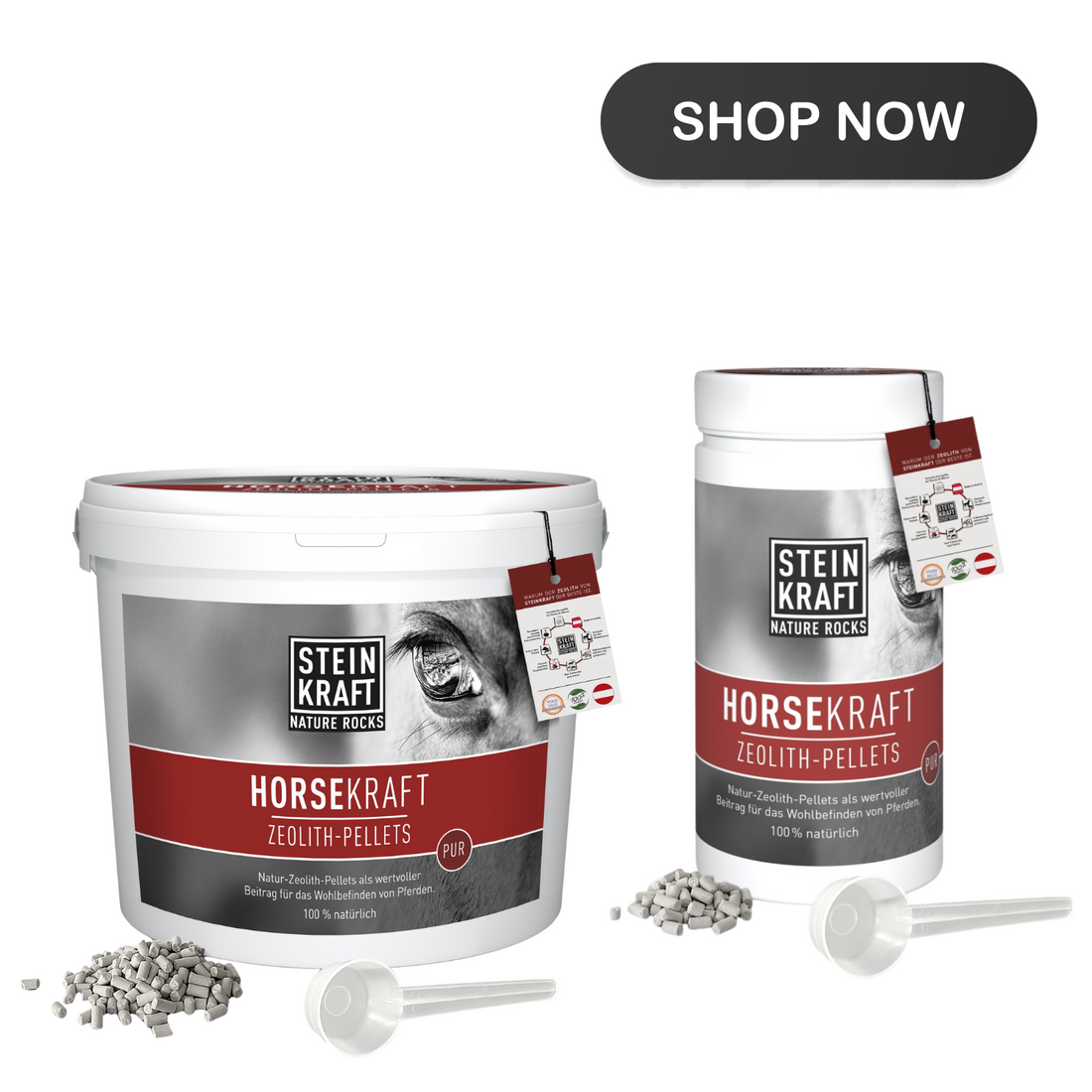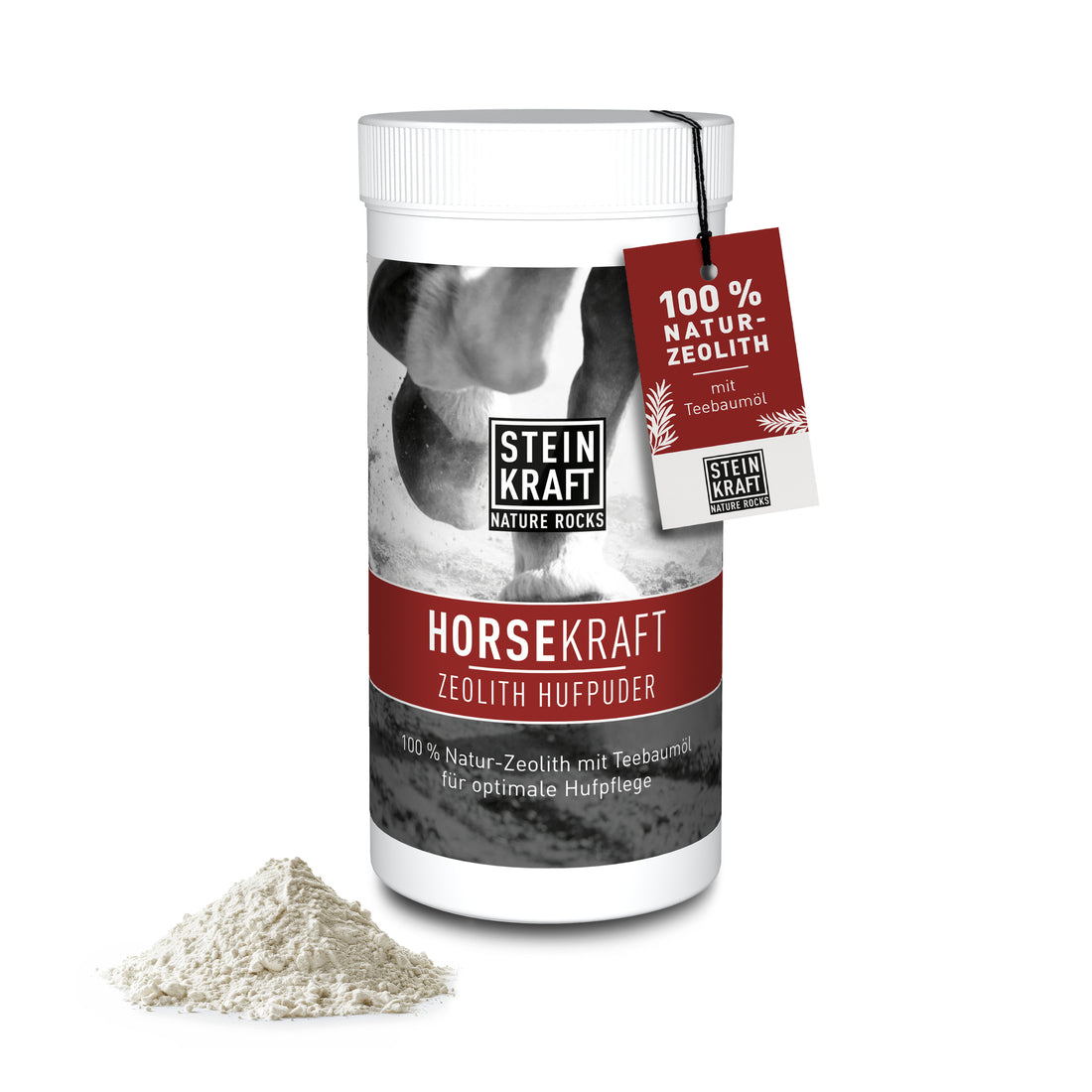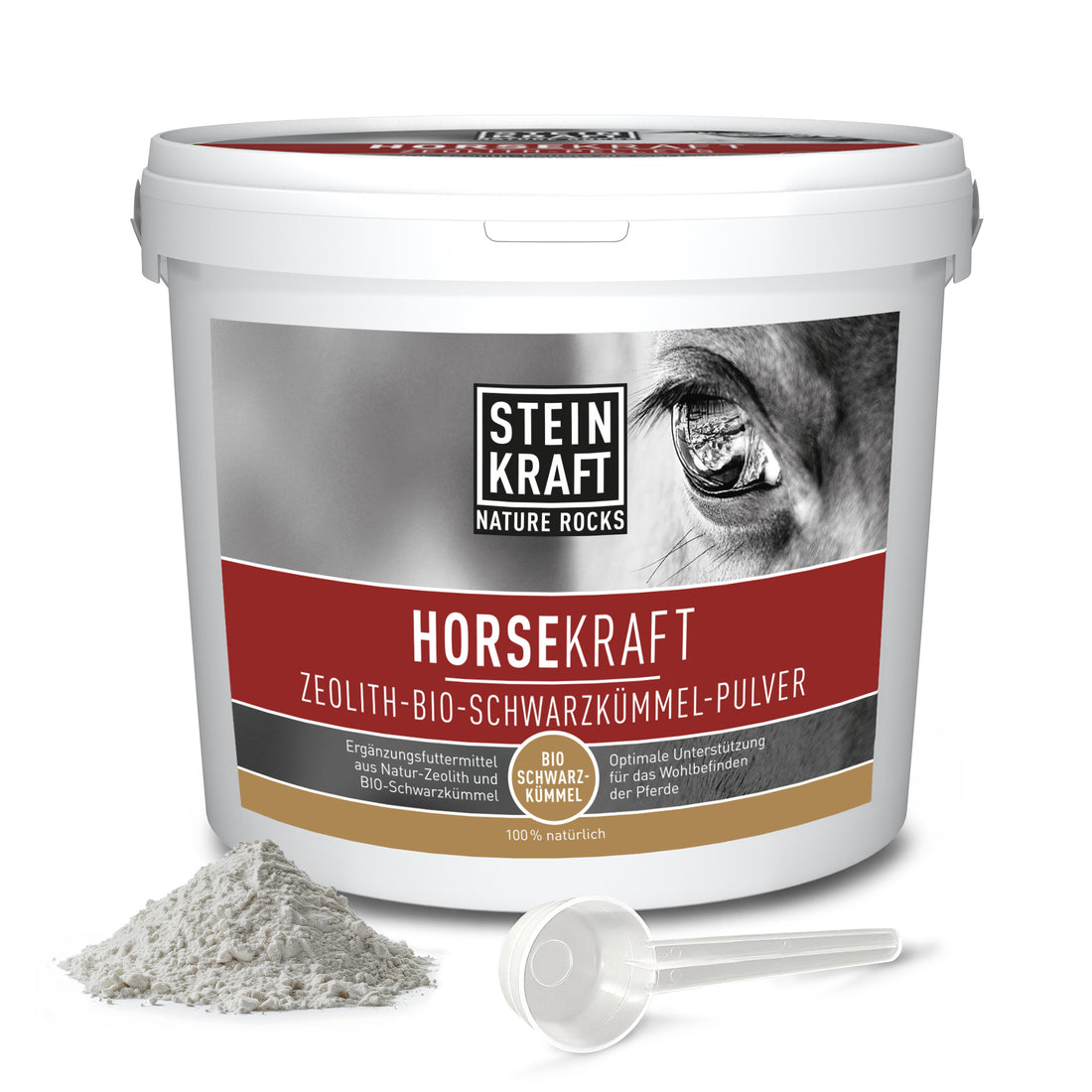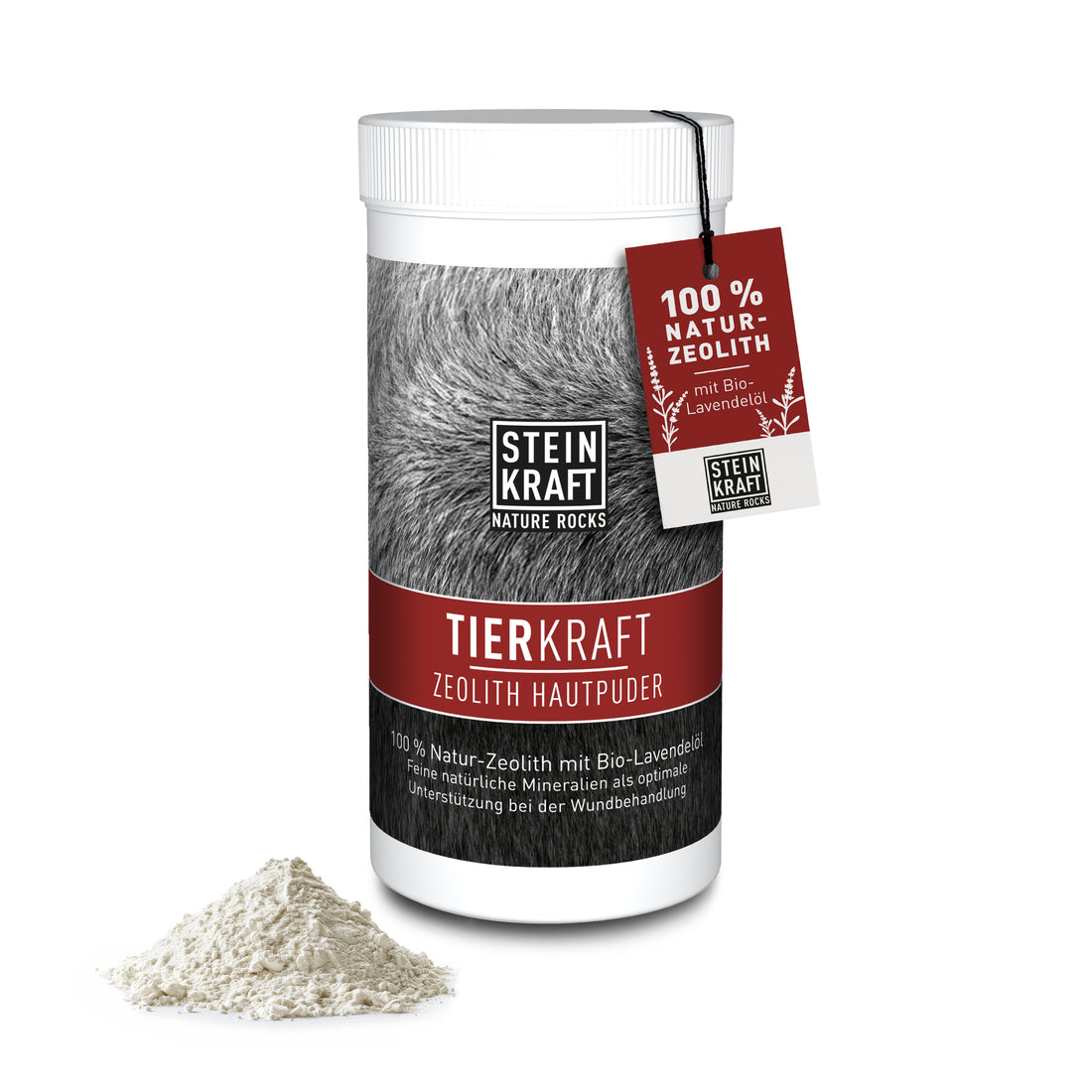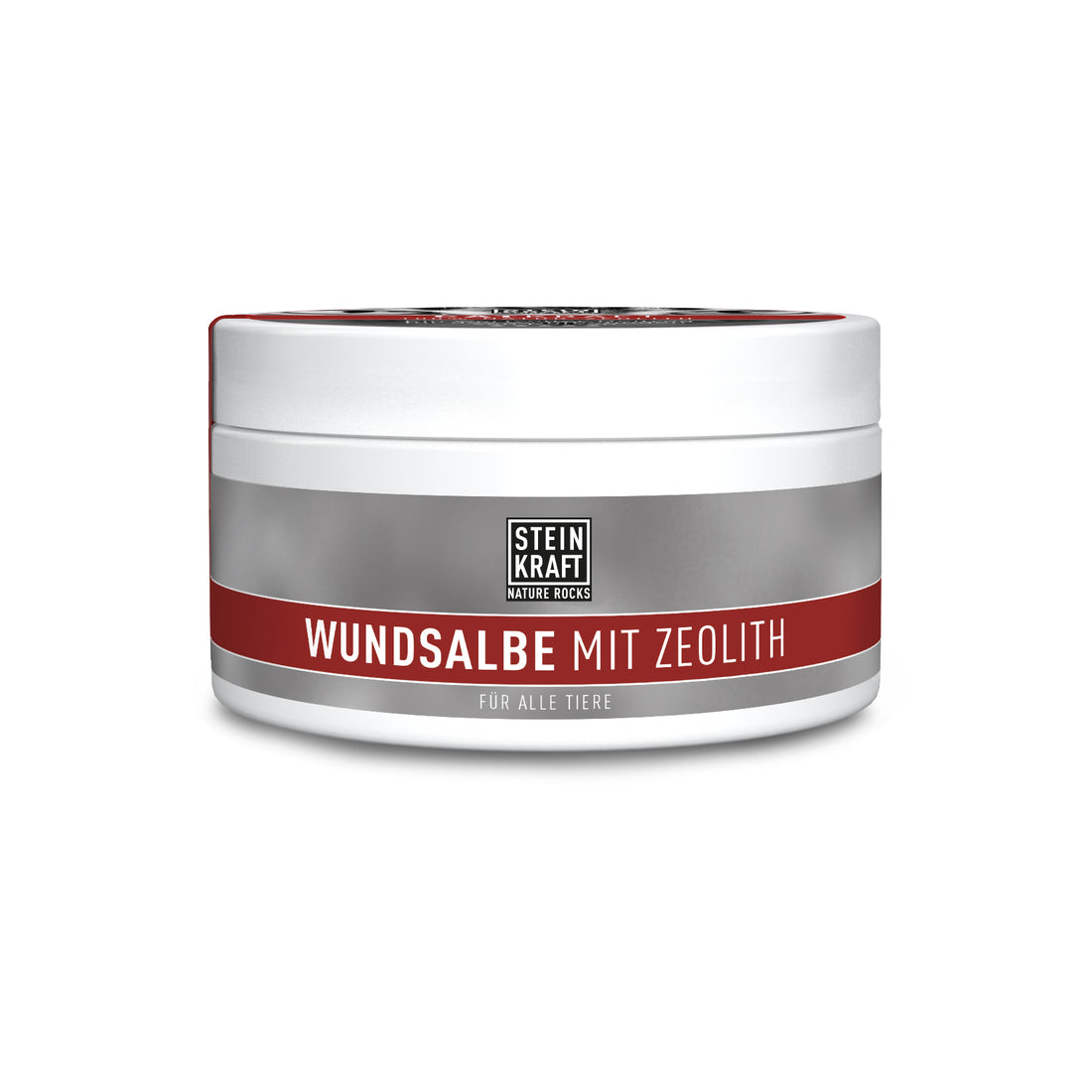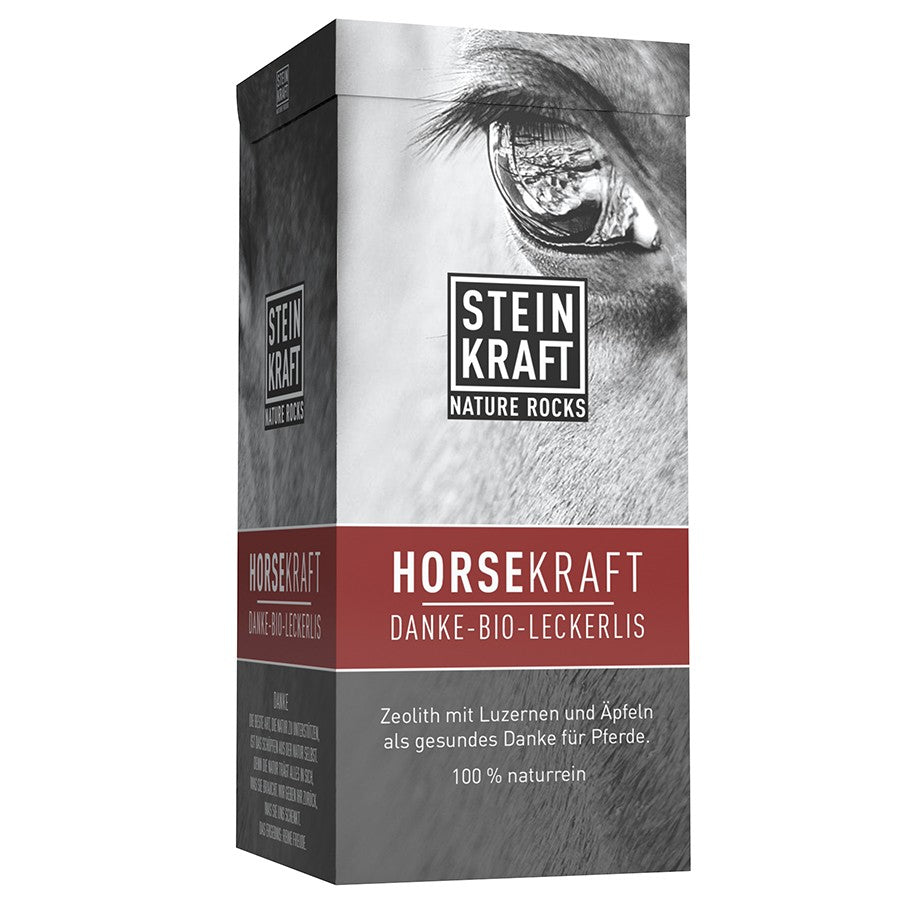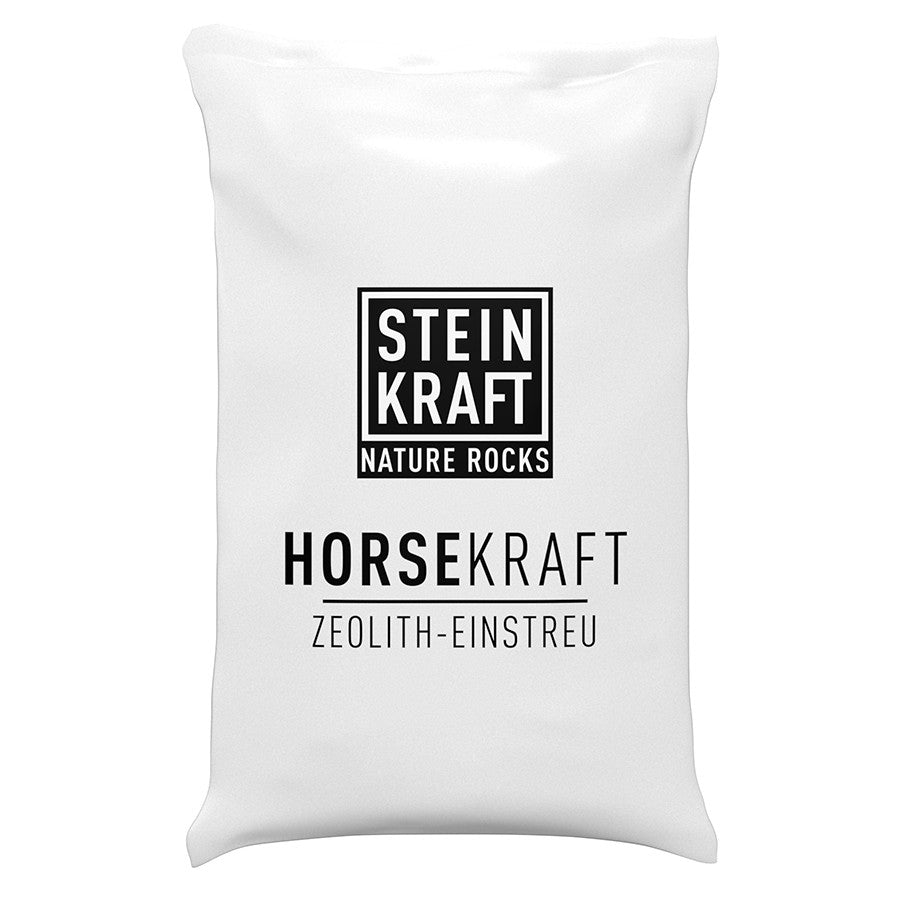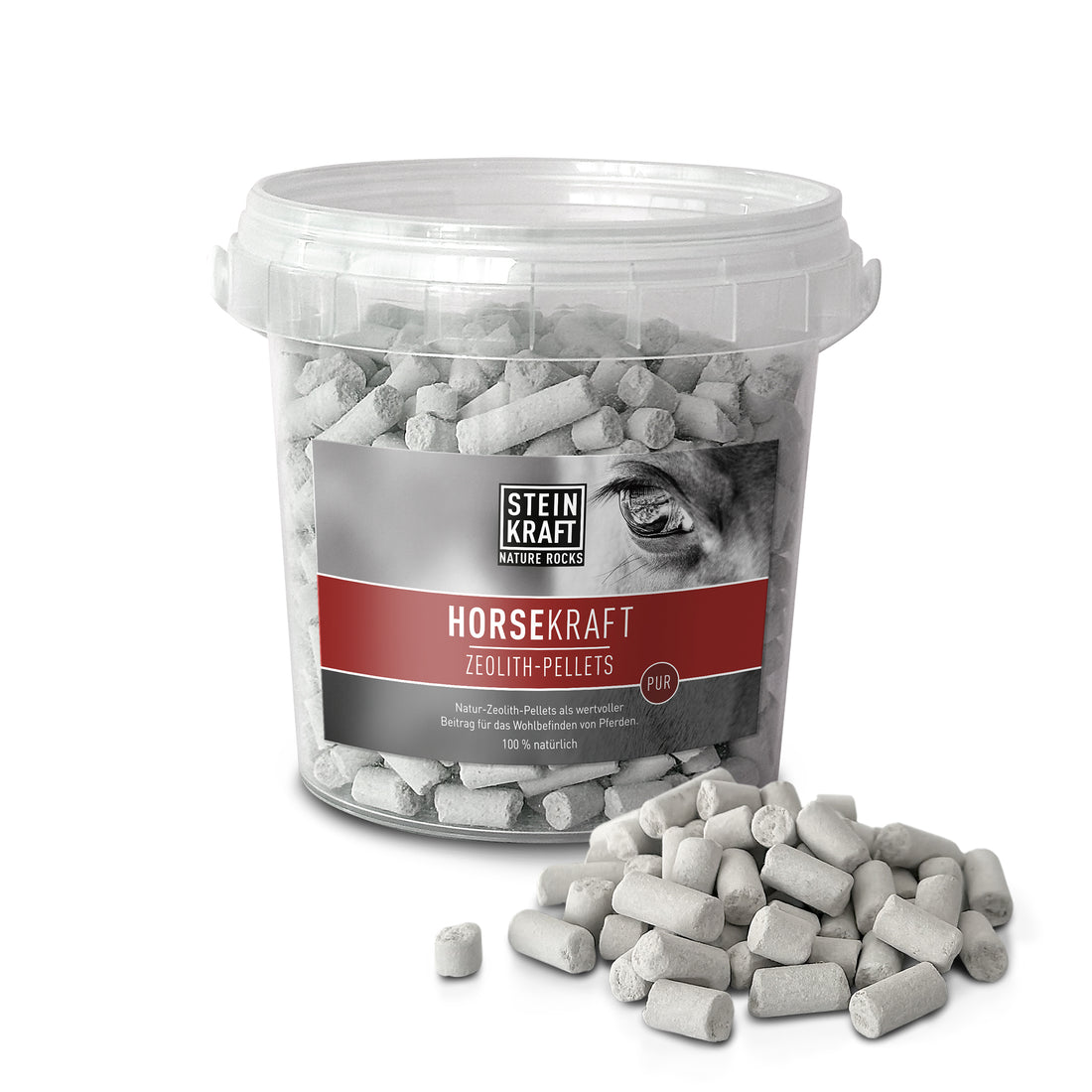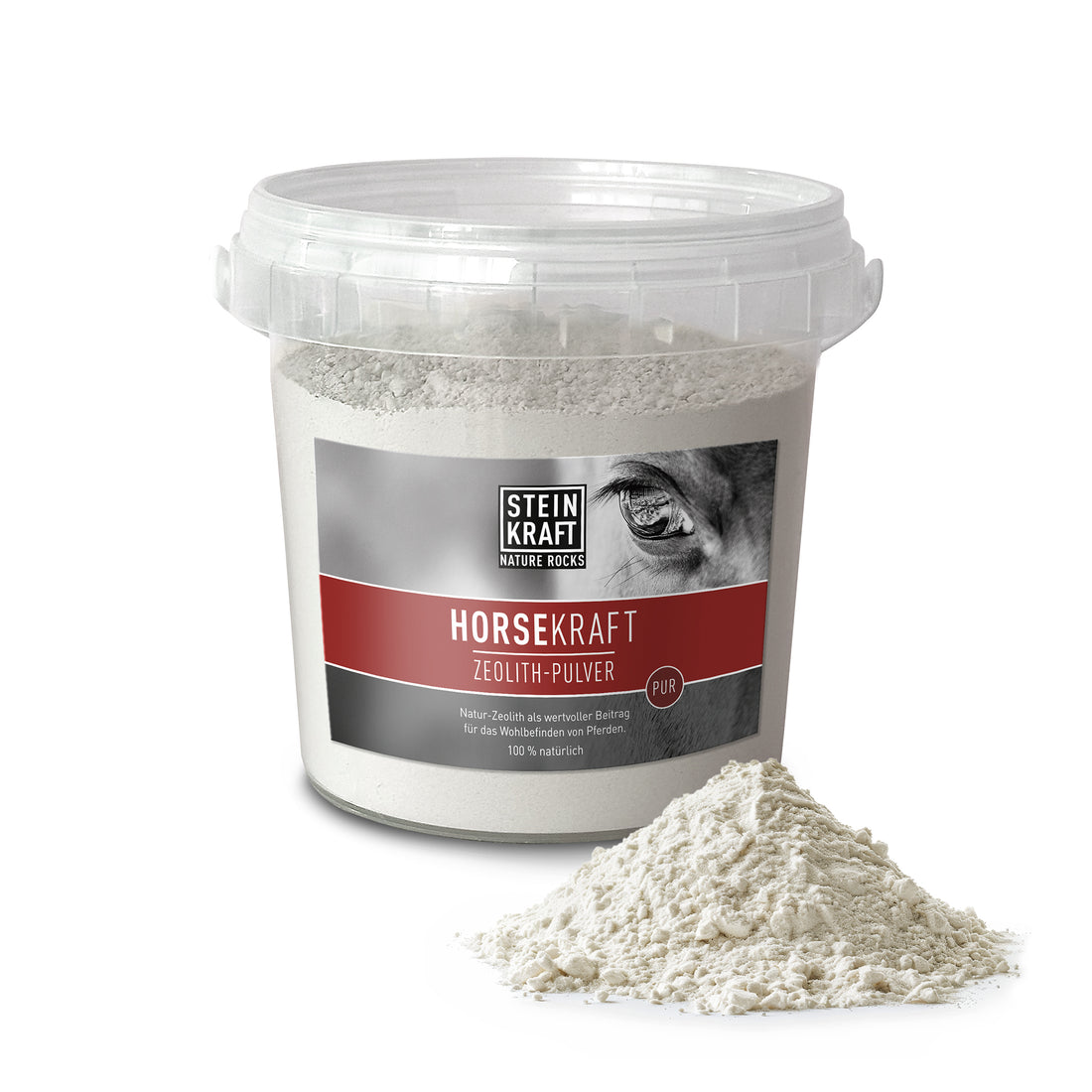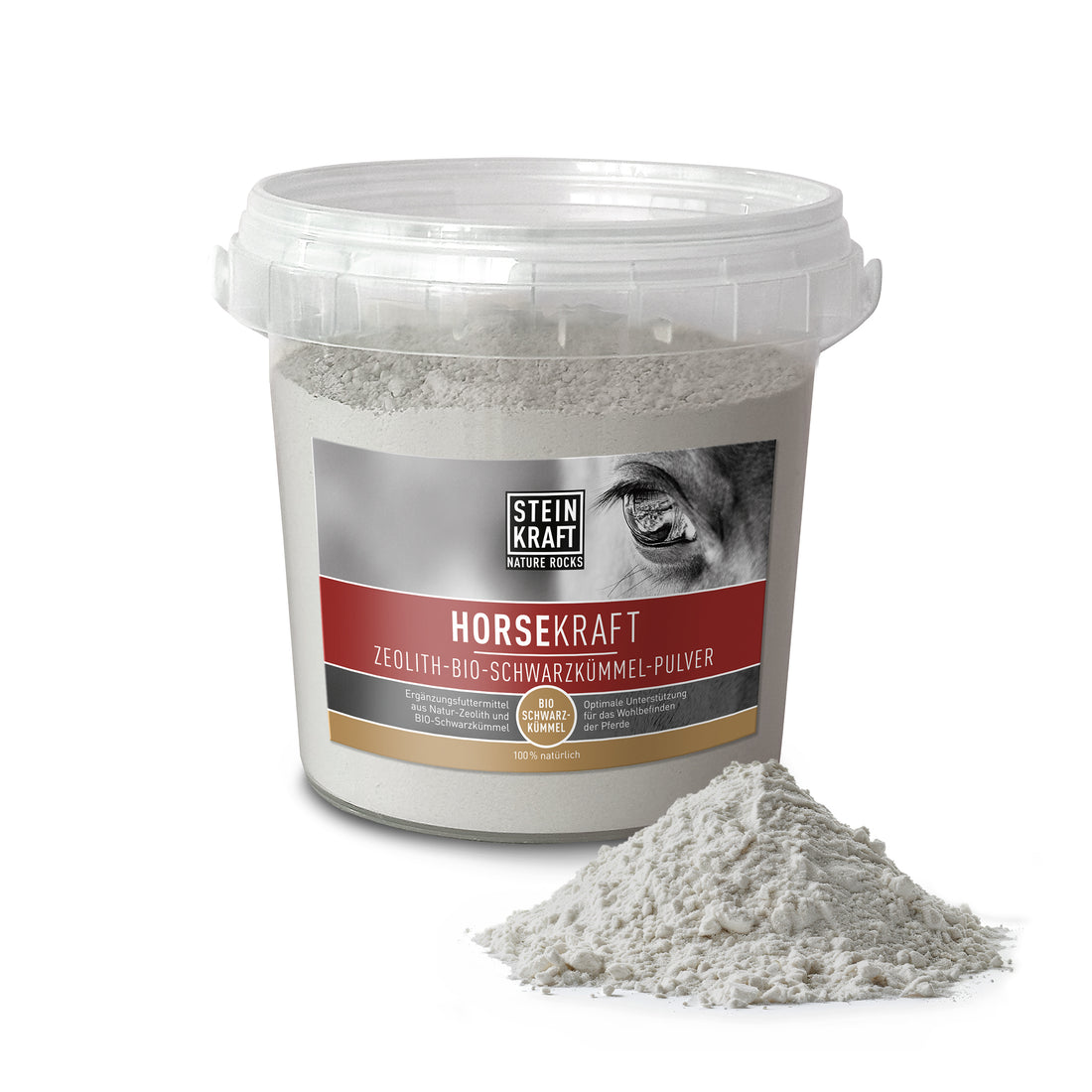What is crushed oats for horses?
Rolled oats, also known as crushed oats or oat flakes, are oats that have been mechanically processed to crush or flatten the grains. Unlike whole oat kernels, which remain intact, rolled oats are pressed between two rollers or in a special machine. This results in the grains being flattened, making them easier and faster to digest, especially for animals like horses.

Benefits of rolled oats for horses:
- Improved digestibility: Crushing breaks down the cell structures of the oats, which improves the availability of nutrients and facilitates digestion.
- Higher energy intake: Because oats are easier to digest, the horse can absorb and utilize the nutrients they contain, especially the carbohydrates, more efficiently, which is particularly important for athletically active horses.
- Gentle feeding: Crushed oats are less abrasive to the teeth of horses than whole oat grains and therefore gentler on the teeth.
Use of rolled oats in horse feeding:
Rolled oats are a popular feed in equine nutrition because they are a good source of energy and rich in essential nutrients such as fiber, vitamins (especially B vitamins), and minerals (like magnesium and phosphorus). They are often used as a supplement to hay or other feeds to increase the energy density of the ration without overloading the horse's digestive system.
However, it is important to store rolled oats correctly , as the rolling process can shorten their shelf life. The broken structure makes them more susceptible to mold and mycotoxins, especially under damp or poorly ventilated storage conditions. Therefore, rolled oats should always be stored in a dry, cool place and fed relatively soon after production to ensure freshness and minimize health risks for the horse.
So, now we come to the risks.
Mold can develop relatively quickly on crushed oats, especially if storage conditions are not optimal. The exact time it takes for mold to appear depends on several factors, including humidity, temperature, and ventilation.

Factors that influence mold growth on rolled oats:
1. Humidity:
If rolled oats have a high moisture content or are stored in a humid environment, mold can develop within a few days to weeks. Moisture is the biggest risk factor for mold growth.
2. Temperature:
Warm temperatures promote the growth of mold. In a warm environment (above 20°C), mold can form more quickly, often within days, if the humidity is high.
3. Ventilation:
Poor ventilation can increase humidity in storage areas, which accelerates mold growth. Well-ventilated and dry storage areas are crucial for extending the shelf life of rolled oats.
4. Storage period:
The longer rolled oats are stored, the higher the risk of mold growth. Because rolling opens the oat kernels' outer layer, they are more susceptible to moisture and mold spores, which reduces their shelf life.
Typical timeframes for mold growth in oats:
- In high humidity and poor storage conditions: mold can appear within a few days to about a week after the crushing.
- Under moderate conditions: When stored under moderate conditions (low humidity, cool temperature, good ventilation), oats can last for several weeks to months before mold becomes visible.
Precautions:
To prevent mold growth, rolled oats should be stored in dry, cool, and well-ventilated conditions. It is also advisable to use the rolled oats promptly and to check them regularly for mold. Visible signs of mold, such as discoloration or a musty odor, indicate that the oats are no longer safe to feed and should be discarded.

Zeolite as a prophylaxis against mold growth in crushed oats
Zeolite can be an effective preventative measure when feeding rolled oats, especially if there is uncertainty regarding the freshness and storage of the oats. Molds and the mycotoxins they produce, such as aflatoxins, pose a serious risk to your horse's health. Even with careful storage, it can be difficult to completely prevent mold growth, particularly if the oats are stored for extended periods or under less than ideal conditions.
Zeolite: Support in an uncertain food world
In the reality of horse feeding, we often have to rely on the quality of our feed sources, whether in the stable or from suppliers. It's not always possible to consistently get fresh rolled oats – logistics, availability, and cooperation within the stable all play a significant role. Out of love for our horses and the desire to make their lives as comfortable as possible, we look for ways to optimally support their health, even if everything isn't perfect.
Horses can tolerate mold spores that may be present in their feed to a certain extent, but this constant exposure can weaken their resistance and make them more susceptible to disease. The body is then constantly busy fighting these stressors instead of focusing its full energy on what's essential – be it training, competitions, or simply daily well-being.
Zeolite can be a valuable aid here. It supports your horse's body by binding mold toxins and other pollutants, thus reducing their burden. This allows the immune system to focus on other challenges, and your horse remains at its best. By incorporating zeolite into its feed, you give your horse the support it needs to better cope with the unavoidable challenges of feeding and direct its energy toward what truly matters.
How zeolite can help prevent mold growth in horse feed:
1. Binding of mycotoxins:
Zeolite has a high adsorption capacity, meaning it is able to bind mycotoxins that could be released from contaminated rolled oats in the horse's digestive tract. By binding these toxins, zeolite prevents them from entering the bloodstream and causing damage.
2. Protection against mold risks:
If you are unsure whether the rolled oats you are feeding are free of mold, zeolite offers an additional layer of security. By neutralizing potential contaminants, it can minimize the effects of mycotoxins on your horse's system.
3. Strengthening the immune system:
By reducing toxic load, zeolite supports your horse's immune system, which is especially important when feed quality cannot always be guaranteed. A strong immune system helps the horse cope better with potential problems caused by low-quality feed.
4. Prophylactic administration:
Even if you assume your rolled oats are of good quality, regular administration of zeolite can benefit your horse overall. It not only acts as a preventative measure against potential contamination but also supports general detoxification and your horse's overall well-being.
Summary - Zeolite and crushed oats belong together
Zeolite offers a valuable way to protect your horse from the risks of mold contamination in rolled oats. By binding and neutralizing mycotoxins, it helps prevent potential health problems. If you are unsure about the freshness or quality of your rolled oats, or simply want to do something good for your horse, regularly adding zeolite to its feed can be a beneficial supplement.
👉 Here you'll find the product of the month and a good overview of all STEINKRAFT product lines.
👉 Here you can find all STEINKRAFT products at a glance - directly in the shop












